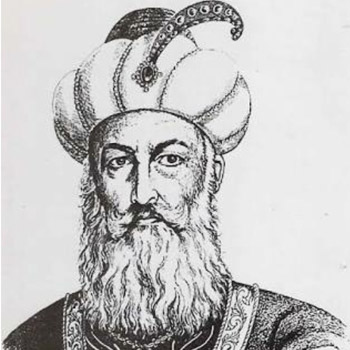Kazi Nazrul Islam
Kazi Nazrul Islam, the national poet of Bangladesh, is an iconic figure of Bengali literature. His poetry, songs, and writings embody the struggles of the marginalized and the oppressed, and his life story serves as an inspiration for millions. In this article, we will delve into the life and works of Kazi Nazrul Islam, exploring his literary legacy and his contributions to Bengali culture.
Early Life and Education
Kazi Nazrul Islam was born on May 24, 1899, in Churulia, a small village in the Burdwan district of present-day West Bengal, India. His father, Kazi Fakir Ahmed, was an imam and a farmer, while his mother, Zahida Khatun, was a homemaker. Nazrul was the second of three sons.
Nazrul's early education was informal, and he was primarily homeschooled by his father. However, his curiosity and love for learning led him to read voraciously, and he soon became well-versed in Bengali, Arabic, and Persian literature. At the age of ten, Nazrul moved to Calcutta (now Kolkata) and began working as a muezzin at a local mosque. It was during this time that he first started writing poetry and composing songs. He also became involved in the Indian independence movement, joining the Indian National Army and participating in protests and rallies.
Literary Career
Nazrul's literary career began in earnest in 1919, when he published his first book of poems, "Agni Bina." The collection, which explored themes of love, freedom, and social justice, was an immediate success and earned Nazrul widespread acclaim.
Over the next decade, Nazrul continued to publish poetry, essays, and songs, cementing his reputation as a rebel poet who spoke truth to power. His works, which were heavily influenced by Sufi mysticism, Islamic theology, and Bengali folklore, were marked by their intense emotion, powerful imagery, and revolutionary zeal.
Some of Nazrul's most famous works include "Bidrohi" (The Rebel), a fiery poem that celebrates the spirit of rebellion and resistance, and "Dhumketu" (The Comet), a collection of love poems that showcases his lyrical prowess. He also wrote several plays, including "Nandini" and "Mukti."
Political Activism and Imprisonment
Nazrul was a passionate advocate for political and social change, and his works often reflected his activism. He was a staunch supporter of Indian independence and was critical of British colonial rule. He was also an advocate for women's rights and spoke out against religious intolerance.
In 1922, Nazrul was arrested for his involvement in the Non-Cooperation Movement, a mass civil disobedience campaign led by Mahatma Gandhi. He was jailed for several months and went on a hunger strike to protest the harsh conditions of his imprisonment.
Nazrul's time in prison had a profound impact on him, and he emerged from jail even more committed to the cause of social justice. He continued to write and publish despite government censorship and persecution, and his works became even more politically charged.
Later Life and Legacy
In the 1930s, Nazrul's health began to decline, and he suffered from a series of illnesses that left him partially paralyzed and unable to speak. He spent the rest of his life in relative obscurity, living with his wife and children in Calcutta. After his death, he was buried on the Dhaka University campus.
However, Nazrul's legacy continued to grow even after his death in 1976. His works remained popular in Bengal and were celebrated by successive generations of Bengalis, who regarded him as a cultural icon and a symbol of resistance against oppression.
Nazrul's poetry and songs were particularly influential in shaping Bengali nationalism and identity, and his works have been translated into several languages, including English, Arabic, and Urdu. His legacy has also been commemorated in several ways, including the establishment of the Kazi Nazrul Islam University in Asansol, West Bengal, and the Kazi Nazrul Islam Airport in Bangladesh.
Conclusion
Kazi Nazrul Islam's life and works continue to inspire people around the world, and his legacy remains an important part of Bengali culture and history. His poetry, songs, and writings speak to the struggles of the marginalized and the oppressed, and his message of resistance and rebellion remains as relevant today as it did during his lifetime. Nazrul's uncompromising commitment to social justice and his tireless advocacy for the oppressed continue to inspire people across generations and nationalities, making him one of the most iconic and enduring figures of modern South Asian literature.
FAQs
Q. What was Kazi Nazrul Islam's contribution to Bengali literature?
A: Kazi Nazrul Islam was a renowned poet, songwriter, and playwright who contributed significantly to Bengali literature. He was known for his powerful imagery, intense emotions, and revolutionary zeal, which made his works a source of inspiration for millions.
Q. What were some of Kazi Nazrul Islam's most famous works?
A: Some of Kazi Nazrul Islam's most famous works include "Bidrohi" (The Rebel), "Dhumketu" (The Comet), and "Nandini" and "Mukti," two plays that explored themes of love, freedom, and social justice.
Q. How did Kazi Nazrul Islam's political activism influence his literary works?
A: Kazi Nazrul Islam was a passionate advocate for political and social change, and his works often reflected his activism. He was a staunch supporter of Indian independence and was critical of British colonial rule. He was also an advocate for women's rights and spoke out against religious intolerance.
Q. What is Kazi Nazrul Islam's legacy?
A: Kazi Nazrul Islam's legacy remains an important part of Bengali culture and history. His poetry, songs, and writings speak to the struggles of the marginalized and the oppressed, and his message of resistance and rebellion remains as relevant today as it did during his lifetime.
Q. How has Kazi Nazrul Islam's legacy been commemorated?
A: Kazi Nazrul Islam's legacy has been commemorated in several ways, including the establishment of the Kazi Nazrul Islam University in Asansol, West Bengal, and the Kazi Nazrul Islam Airport in Bangladesh. His works have also been translated into several languages, including English, Arabic, and Urdu.




